People often say that life is stranger than fiction, but what about death? Throughout history, many notable authors have themselves become the subjects of a noteworthy story because of the strange and sometimes gruesome ways in which they have died.
Listed below are 9 of the weirdest demises I have come across. If you are aware of any others, please feel free to add them in the comments section below!
-
Christopher Marlowe

Believe it or not, the 16th century playwright Christopher Marlowe was no stranger to a bar-room brawl. On May 30, 1593, Marlowe arrived at a lodging house with a few acquaintances to dine and have drinks. Everything was going well until it was time to pay the tab, at which point a heated argument broke out between Marlowe and his friend, Ingram Frizer.
Eyewitnesses claim that Marlowe seized Frizer’s dagger and in the resultant struggle, Frizer plunged the implement into Marlowe’s skull directly above his right eye, killing him instantly.
As if this wasn’t brutal enough, some conspiracy theorists claim that Marlowe’s murder was actually an assassination ordered by none other than Queen Elizabeth I – a theory made more credible by the fact that she pardoned Frizer four weeks later for undisclosed reasons. As an outspoken atheist, Marlowe was seen as a direct threat to the Church and given this was Elizabethan England (where you could be executed for far lesser crimes), it is plausible that ol’ Liz’s orders to prosecute Marlowe “to the full” may actually have been an order to end his life, carried out by his friend.
Weirder still, there are some who support the Marlovian Theory that the whole thing was an elaborate set-up designed to help Marlowe flee the country to avoid his impending inquisition and that Marlowe lived for many years afterwards, producing plays under a different name… and the name he apparently chose? William Shakespeare. The real Shakespeare, these theorists argue, was nothing more than a front-man to allow Marlowe to keep writing and having his plays performed in England long after 1593. Although there are many who doubt Shakespeare was the mastermind behind all of his plays, this is one of the strangest theories out there about who the great bard really was.
-
Aeschylus
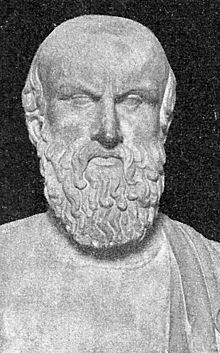
Aeschylus, an Ancient Athenian author who specialised in tragedies, befell a tragedy of his own in 455 BC after having his head split open by a falling tortoise. Yes, you read that right. When outlining the specifics of Aeschylus’ demise, Valerius Maximus wrote that the tortoise had been dropped by an eagle that had mistaken his bald pate for a rock (a technique used by hunting birds to ‘break open’ their prey).
That’s not the only bizarre thing about his death. In his Naturalis Historiæ, Pliny claims that Aeschylus was only outdoors in the first place to avert the fulfillment of a prophecy that his death would occur as a result of a “falling object.” Spooky!
-
Dan Andersson
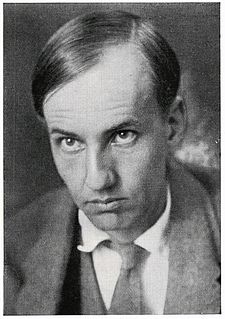
Sadly, the Swedish poet Dan Andersson is better known for the gruesome nature of his death than he is for his life’s works. He died on September 16, 1920, after the concierge at the appropriately-named Hotel Hellman failed to inform him the room was about to be fumigated for bedbugs.
I know what you’re thinking – unless they were some kind of massive, mutant bed-bugs needing to be mowed down with bullets or something, Andersson shouldn’t really have been at too much risk… right? However, in 1920s Stockholm it was commonplace to use lethal doses of hydrogen cyanide for pest control, meaning the fumigation basically transformed Andersson’s hotel room into a giant, chintzy gas chamber. His body wasn’t found until 3:00pm during the clean-up, at which time it was much too late. The hotel has since been demolished.
-
Edgar Allan Poe
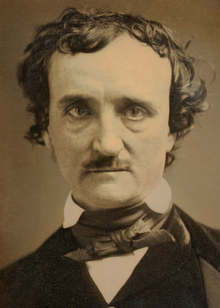
To this day, the death of Edgar Allan Poe – considered by many to be the godfather of modern horror – is steeped in mystery and intrigue. Why? The fact is that no-one really knows how and why Poe died. No death certificate was ever filed and the only known obituary in existence claims that he died of “phrenitis” (congestion of the brain), which frankly raises more questions than it answers.
What little is known of the circumstances surrounding Poe’s demise sounds like they were plotted by the man himself in one of his more sinister tales.
On a wet and stormy night back in October 3, 1849, a compositor working for the Baltimore Sun by the name of Joseph W. Walker found a drenched and delirious man lying in the gutter close to Gunner’s Hall in Baltimore. The man, it transpired, was none other than Edgar Allan Poe.
Poe had left Richmond, Virginia bound for Philadelphia the week prior to being discovered by Walker, but since his departure no one had heard from him. As Poe was incoherent until his death 4 days later on October 7, 1849, he was unable to tell anyone where he had been for the last week, but Walker noted at the time that Poe was dressed in soiled, second-hand clothes (clearly not his own), a fact which struck him as suspicious.
Another interesting fact is that Poe called out the name “Reynolds” repeatedly the night before he died, but nobody has ever been able to piece together who or what this meant – was it a plea for help, or an accusation? Or, perhaps, simply the senseless outpourings of his maelstrom of a mind in those final days?
There are many theories surrounding how exactly Poe died, the most popular including that he was “cooped” (a practice in which corrupt electioneers would abduct voters, ply them with drink, dress them in gentlemanly get-up, and force them to vote for a specific candidate) and subsequently died of alcohol poisoning, or that his raging alcoholism exacerbated a more serious medical condition (such as syphilis, diabetes, TB, epilepsy, or rabies) which not only killed him, but may have driven him mad in the process.
-
Tennessee Williams

The Pulitzer prize-winning playwright behind A Streetcar Named Desire and Cat on a Hot Tin Roof, Tennessee Williams, died aged 71 of asphyxiation after choking on a small plastic bottle cap.
His body was discovered a day later on February 25, 1982, by his secretary Joh Uecker.
New York’s Chief Medical Examiner later ruled that Williams was using the cap to ingest barbiturates.
Due to his copious drug use, Williams did not have a gag reflex and so was unable to expel the object from his throat after swallowing it. Moral of the story: be careful what you put in your mouth.
-
Li Bai

Li Bai (also known as Li Bo) was one of the great Chinese poets of the Tang Dynasty; he was also a serial womaniser and a drunk. Although the circumstances of his death in 762 AD are now the stuff of Chinese legend, meaning they may have been embellished or be entirely inaccurate, they’re bizarre enough to deserve a place in the list.
The story goes that following a long night of drinking, Li Bai drowned in the Yangtze River after trying to “embrace” the reflection of the moon, falling from his boat in the process. “Embrace,” of course, is a rather euphemistic way of saying Li Bai tried to *ahem* grab the moon by the crater in a show of lust of which Donald J. Trump would be proud… which, let’s face it, is a pretty weird way to go.
-
Mark Twain
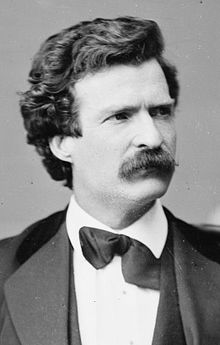
Mark Twain, author of such classics-now-considered-racist as The Adventures of Huckleberry Finn, died of a heart attack in his home in Redding, Connecticut on April 21, 1910… a decidedly average demise. What’s so intriguing about Twain is not therefore how he died, but when: more specifically, the fact that he actually predicted the date of his death more than a year before it happened.
Twain is quoted as saying that he “came in with Halley’s Comet in 1835” (i.e. he was born on the same day that the comet came into closest proximity with the Earth) and so he “expect[ed] to go out with it.” This expectation was eerily fulfilled as on April 21, the comet could be seen once again streaking across the skies, the closest to Earth it had been on this particular fly-by.
Can a man die of expectation? Or was it fate that saw “these two unaccountable freaks… go out together,” as Twain himself once predicted they would?
-
Albert Camus
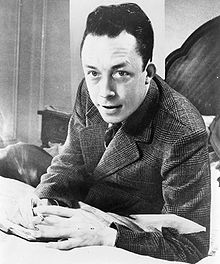
Like some of the other authors on this list, the death of writer and philosopher Albert Camus has drawn the attention of conspiracy theorists worldwide. Although officially Camus died an accidental death as a result of a fatal car crash on January 4, 1960, evidence has since been uncovered that suggests the crash was no accident. In fact, there is a possibility that Camus was killed by the KGB.
This theory hinges on the testimony of the celebrated Czech poet and translator Jan Zábrana, who claims in his diary that the crash that killed Albert Camus in 1960 was organised by Soviet spies.
This act was apparently in retaliation for an article published in Franc-tireur in 1957 in which Camus had criticised Moscow’s decision to send troops to crush the Hungarian uprising of 1956.
According to Zábrana, the KGB damaged a tyre on Camus’ car using a sophisticated piece of equipment that cut into the wheel at speed, but all evidence of the device was destroyed in the resultant crash.
-
Sylvia Plath

The acclaimed poet and feminist icon, Sylvia Plath, battled with depression for most of her life, undergoing experimental treatments such as electroshock therapy in her search for a ‘cure.’
After several failed suicide attempts (including ingesting large amounts of pills and intentionally driving herself off the road into a river), Plath succeeded in taking her own life on February 11, 1963, using her most extreme method yet: while her children slept in the next room of her London home, she plugged up the door leading into the kitchen with wet towels, knelt on the floor, and stuck her head in her gas oven as far as it would go. When they found her dead a few hours later, her head was still in the oven.
(Images: Wikipedia)
